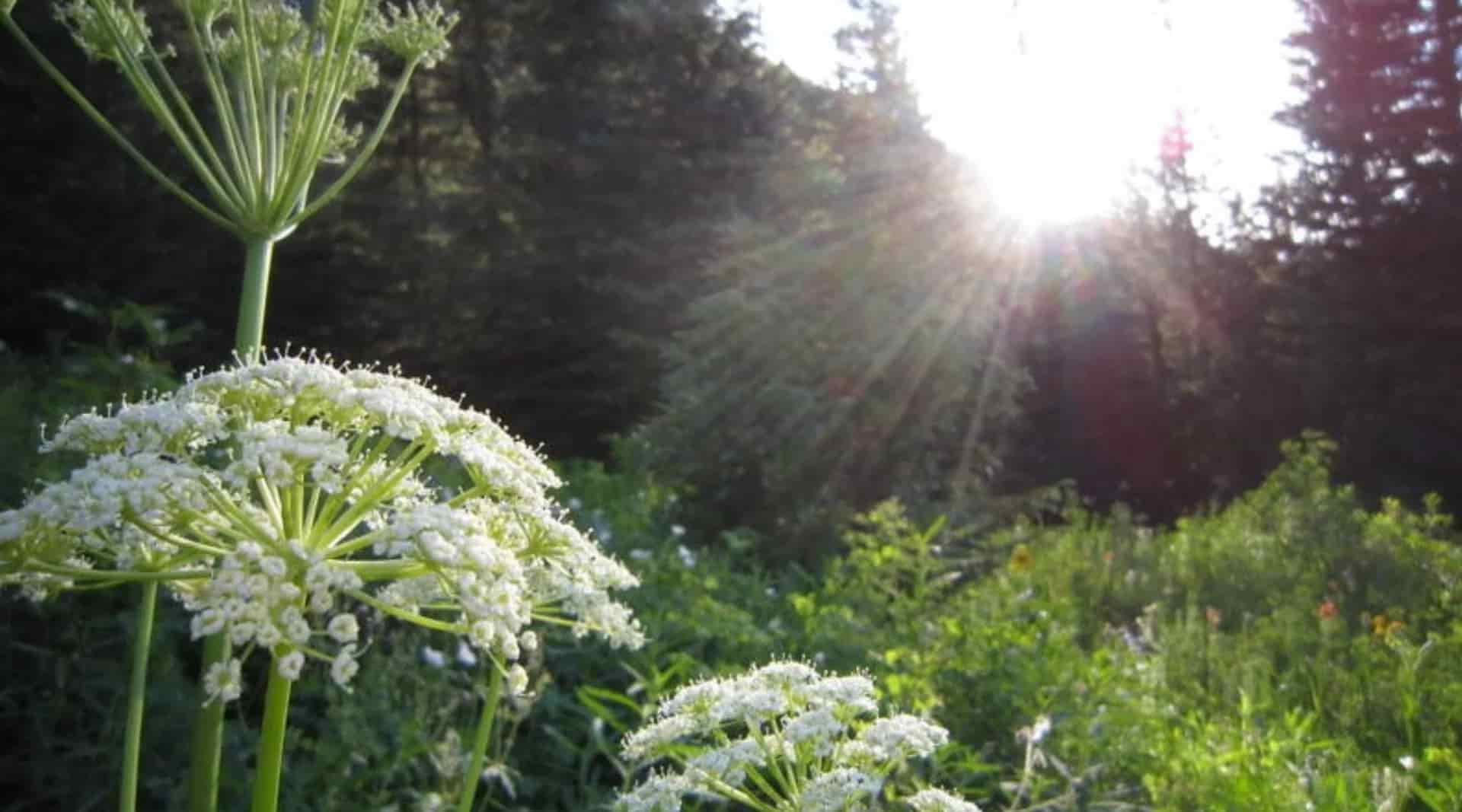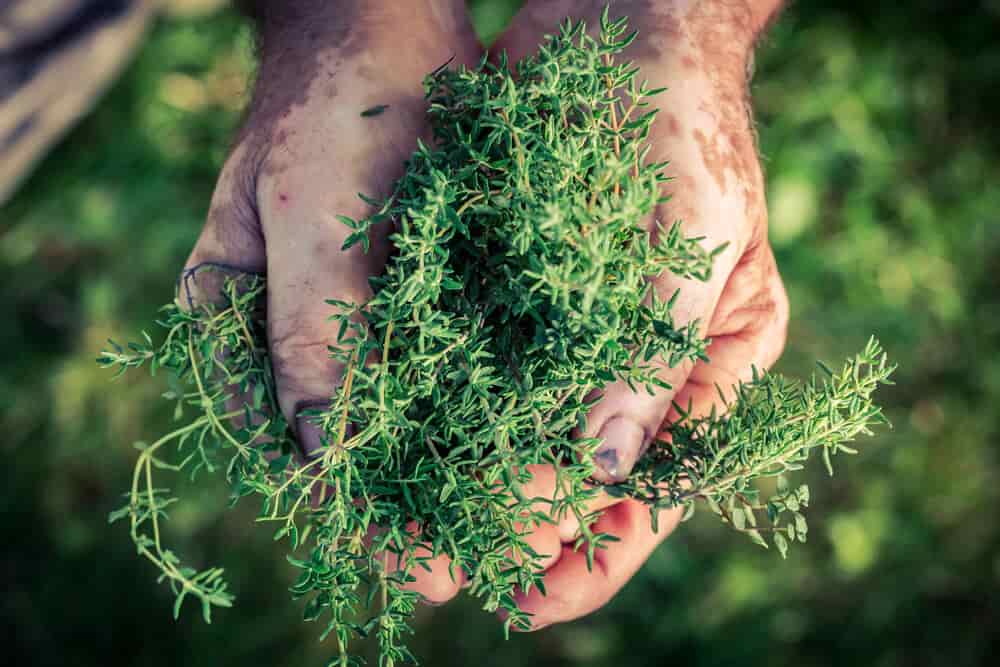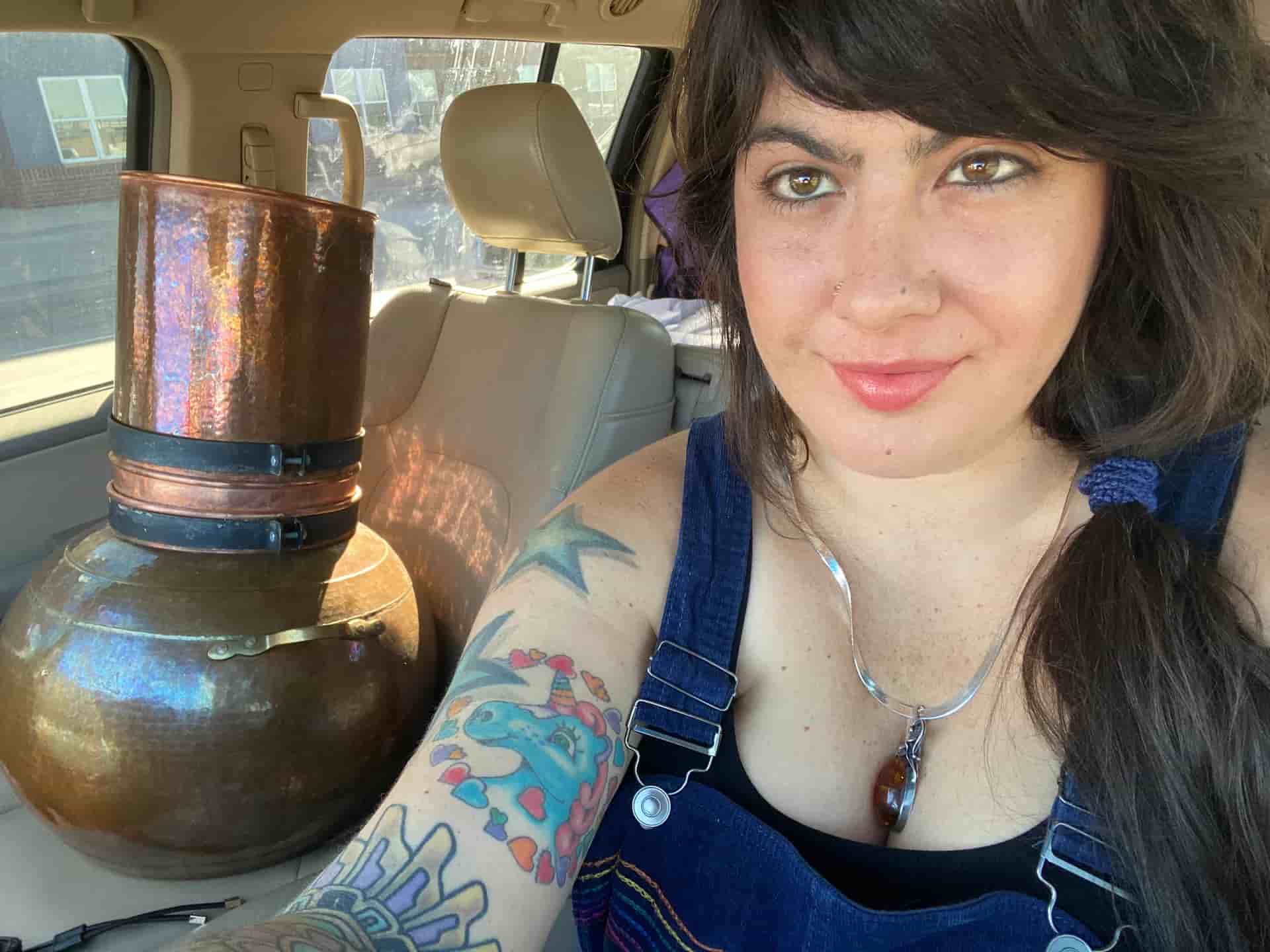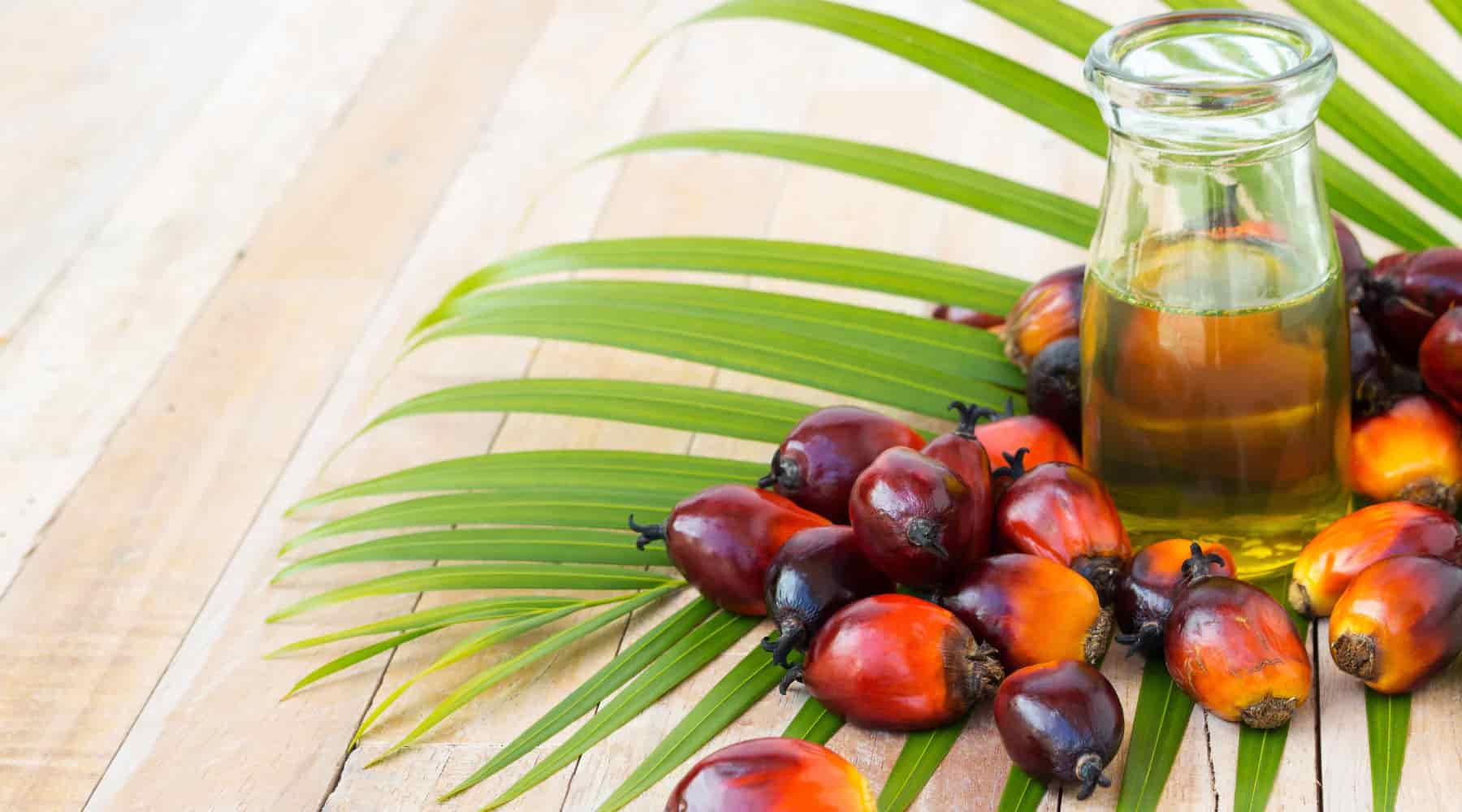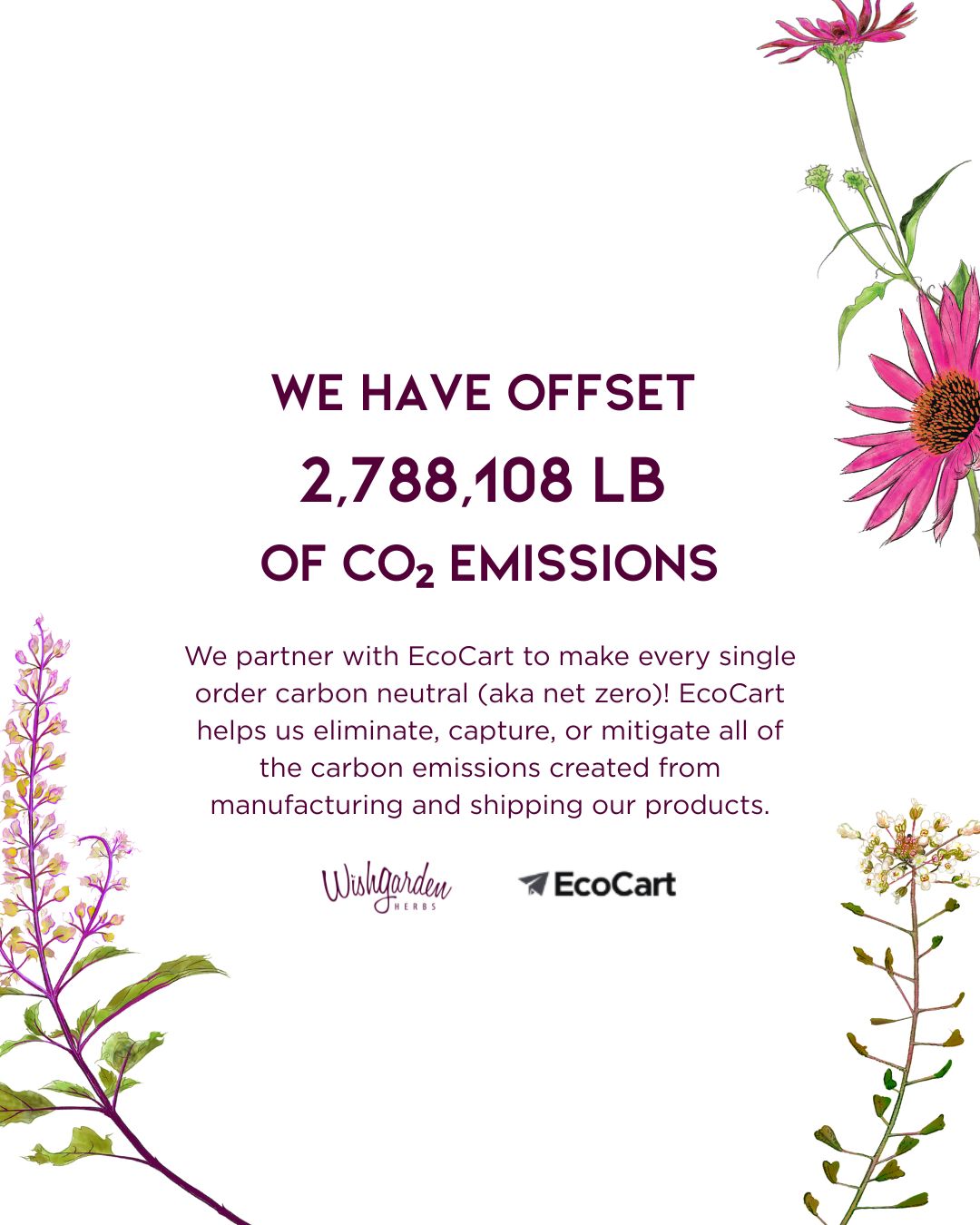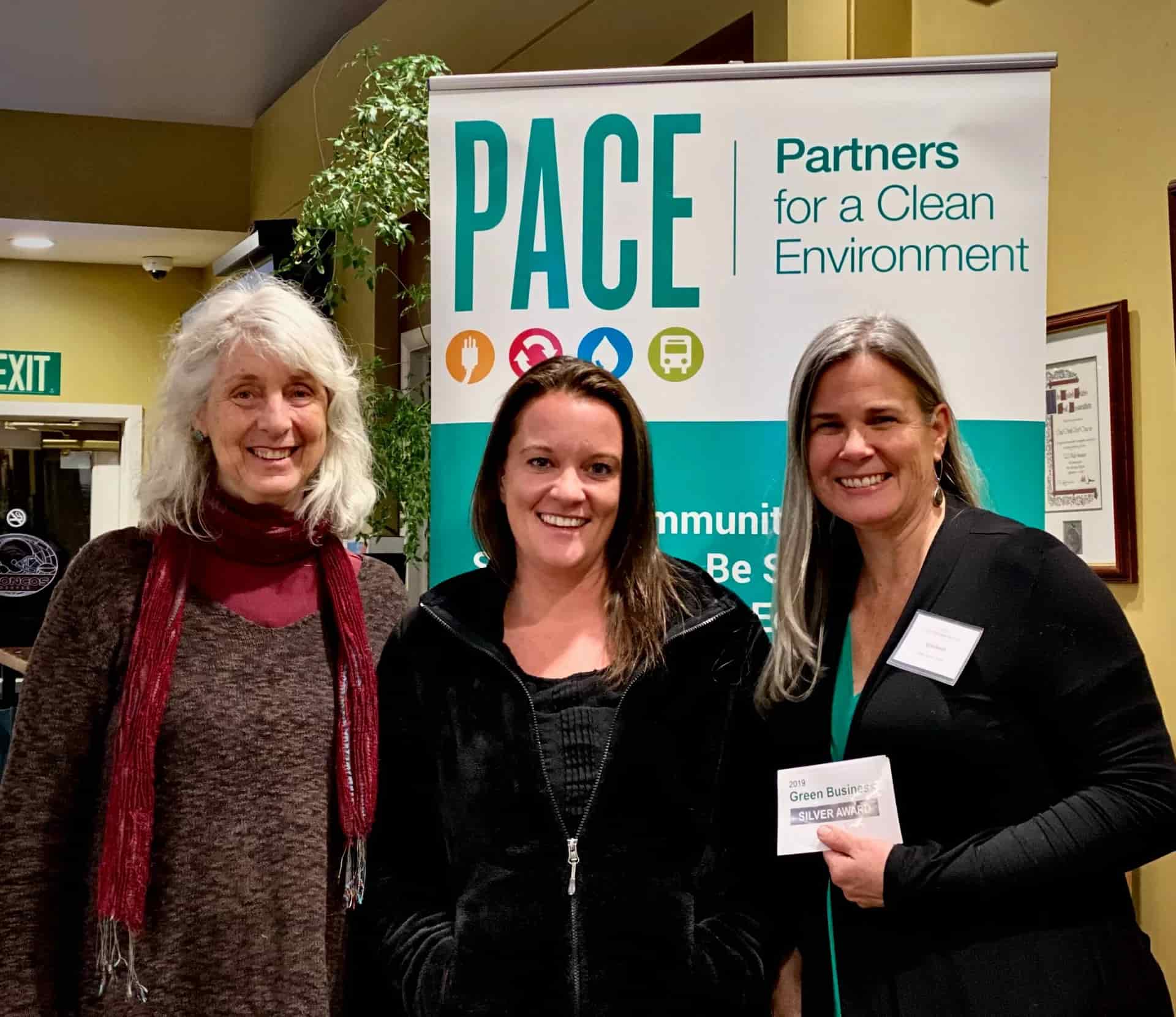
On Sustainability: An Interview With WishGarden's Erin Smith
Written by WishGarden HerbalistShare
Hi Erin, congratulations to WishGarden on winning a Green Business Silver award by the City of Louisville. Tell us a bit about this award and why it's important? Thanks! We are really honored to be recognized by the City of Louisville for our sustainability efforts. Louisville and the rest of Boulder County is very cutting edge in the work they do to make it easier for businesses and residents to up their sustainability game and really be able to make a difference. Businesses play an important role in making a tangible difference in combating climate change and pushing sustainability forward. We've been working hard to take our sustainability efforts to the next level so it means a lot to be recognized for what we've been able to do so far.
You are the Director of Science, Sustainability & Education at WishGarden. Can you tell us about some of the efforts WishGarden is currently making in the areas of sustainability, as well as about your goals for the future? As a company that is dependent on natural resources — herbs — for what we do, sustainability is really important to us and has been since the beginning. But because of climate change and the rapid rate the natural and herbal industries are growing, including WishGarden, there is increased urgency to do what we can to not only make sure what we do is sustainable but that we are also part of the solution. That's why I'm always trying to find ways to make WishGarden not only a sustainable business but a regenerative one.
For me, I tend to view sustainability from two angles — internal and external. Our internal sustainability efforts include the following:
- We have moved closer to zero waste with composting and recycling programs.
- We recycle special plastic which has further eliminated our waste and we are now able to recycle many of the bags and wrapping that our ingredients arrive in.
- We are recycling our hair nets, foot guards, ear plugs, and gloves used in production with TerraCycle.
- We chip and compost all pallets.
- We recycle all of the containers that ingredients arrive in.
- We have eliminated packing peanuts from our shipping materials. Almost all of our packing materials are 100% recyclable.
- We've joined the Climate Collaborative, an industry-wide coalition to fight climate change in the industry ,
- We've improved our water and energy efficiency
- We are planting trees to help offset the carbon footprint we do have
Our external sustainability efforts include the herbs themselves and our efforts to make sure all of our ingredients are sourced sustainably. I'm actively involved with ensuring that all of our herbs are harvested or grown in a sustainable fashion. Moving forward we want to include more FairWild certified herbs in our products and those grown with regenerative practices. We've been very involved in supporting research on the sustainability of many herbs that are in our formulas, including Osha and Black Cohosh, and we will continue to support this important work. We need more data to truly understand the impact of harvesting on the wild populations of these herbs and WishGarden is committed to supporting this research.
As a smaller company that is entirely self funded there are challenges and it is not always easy to immediately make all the changes we want to. But I'm a big believer in the power of small actions and to make the changes you can and collaborate with others as much as possible to leverage this change. That's why we are active with the Climate Collaborative and I co-chair the American Herbal Product Association's Sustainability Committee. As a smaller company, collaboration is key for us to be able to move forward in attaining our goals and I love that this industry in general is passionate about working together to make a difference and do the right thing.
There is so much more to tell and we are going to start sharing more about all that we are doing around sustainability in blogs this year and moving forward.
Can you offer any advice to those of us who would like to lead a more sustainable lifestyle? Start where you can. It is easy to get overwhelmed by all that needs to be done. But pick one thing that you can change and do that. And move on from there. Even better if you can get friends and family to do it with you. Some of the biggest change can come from simple steps done together.
Henry David Thoreau once said that "It's not what you look at that matters, it's what you see." You are well-known for the HerbWalks you lead. How do you help the participants in those walks "see" what's before them and gain a greater appreciation for the environment? Just the act of taking time to meander and stop and meet a plant is a radical shift in perception, especially in our fast-paced world that has really little education about the natural world. I love doing herb walks because you always see a light come on in people. On an intuitive level I think we crave this knowledge of, and relationship to, our natural world. Once upon a time we all had it and people don't even realize they are missing it until they are there and learning again. There is so much we walk by daily without paying it any notice so if I can help people to just notice a bit more it can make a big difference. It's a simple shift in perception that can have a large impact. For example, some of my favorite plants to talk about are what most think of as "weeds." I want to help people to see them differently. Not only as amazing sources of food and medicine but for the role they play in the ecosystem and the information they can share. If I can get someone to leave the walk and think a bit about why there are Dandelions in their yard rather than just blindly spraying them with toxic chemicals that is huge.
If one wanted to become more educated on sustainability, are there any books or videos you would suggest? There are so many. One of the recent ones to come out that I like is Project Drawdown by Paul Hawken. I think people can gain inspiration and insight from this that can spur them to take action in one or many areas in their lives. I also love the video below on the impact on reintroducing wolves in Yellowstone. I use this one a lot with students because I think it's a great illustration of what happens when all players in an ecosystem are allowed to play their role. I often use it to spark a discussion about what it would look like if humans were also balanced players in ecosystems. It is still a prevalent belief that we are somehow removed from nature and just watching it from the sidelines at best or instruments of destruction at worst. But we are a valuable and important part of a healthy ecosystem if we are conscious and balanced about our role in it.
For educational purposes only. This information has not been evaluated by the Food and Drug Administration. This information is not intended to diagnose, treat, cure, or prevent any disease, or sell any product.















